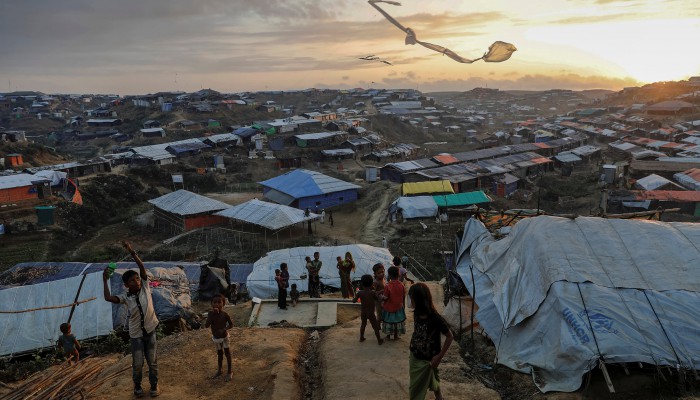Rohingya Refugee Deportation: Locating “Voluntary Repatriation” between National Security and Political Expediency
The hastiness demonstrated by the Government of India (GoI) in deporting 7 Rohingya refugees to Myanmar has once again established inherent discriminatory practices pursued by the GoI towards refugees based on religion with utter disregard to the Constitution of India, Supreme Court of India, international law, jus cogens and customary international law.
Such an action smacks of political expediency as the 2018-2019 period has already been put in election mode. However, the GoI has never shown such agility in the cases of deporting other refugee groups in India back to their country of origin. On October 04, 2018, Indian authorities (voluntarily?) repatriated and handed over seven ethnic Rohingya refugees to Myanmar border officials at Manipur (India). Under UNCSR and international law, the principle of “voluntary repatriation” requires that refugees must have given “informed consent” regarding leaving the country of reception or asylum. But it seems that in the instant deportation action such steps had not been adequately and appropriately provided. Earlier these 7 Rohingya refugees had been sentenced to 3 months punishment in jail in 2012, and they had served 6 years in detention.
Voluntary repatriation is the conscience of refugee discourse and any violation is in grave breach of the principle of non-refoulement (no-forced deportation) under Article 33 (1) of the 1951 UN Convention Relating to the Status of Refugees (UNCSR) though India is not a party to UNCSR. However, Article 3 of the 1984 UN Convention Against Torture (CAT) interdicts measures to “expel, return (‘refouler’) or extradite an individual to another State where there are significant grounds for believing that he would be at the risk of being subjected to torture” and India has signed the CAT but has not ratified it. The Constitution of India protects refugees under Articles 21 and 14 under which the Supreme Court (SC) hands down refugee protection in India in the absence of national refugee law. Nonetheless, India has always been a land of protecting people who have been fleeing persecution from anywhere in the world.
In August 2017, more than 1 million Rohingya Muslims fled persecution perpetrated by Myanmar’s military junta that has been categorized by the UN fact-finding mission as genocide and earlier the UN referred to them as the “most persecuted minority community of the world.” These 7 Rohingya refugees were imprisoned and detained since 2012 in the Silcher central jail in Assam on the charges of illegal entry. They were subjected to arbitrary arrest, torture, persecution in their homeland. But the GoI’s forced return of 7 Rohingya refugees undermines its international human rights obligations as a liberal democracy and emerging regional power.
The GoI’s approach to Rohingya refugees is based on a national security framework that was rejected by the Supreme Court as a grounds for refugee deportations in October 2017. The SC observed that the “government must strike a balance between human rights and national security interests.” However, the Home Ministry ordered all states on October 01, 2018 to start collecting the biometric data of all Rohingya refugees so that the GoI could “initiate action through diplomatic channels with Myanmar and then we will get it resolved as all Rohingya refugees in India are illegal immigrants who will be deported.” However, the SC declined to intervene in the matter as the GoI contended that the 7 men were willing to return while responding to a petition against their deportation moved by human rights lawyers. The SC also denied the UNHCR access to these 7 refugees for ascertaining the facts and circumstances of their expulsion in accordance with international refugee law.
It is aptly argued that the GoI should not deport any Rohingya refugee to Myanmar without the completion of their applications for seeking asylum and refugee status. Their claims must have fair scrutiny and legal review with a human face on the anvil of the human security framework while balancing the concerns of national security imperatives. The fair trial guarantee is one of the biggest concerns in international human rights law and it is equally crucial in India too. Therefore, in India Rohingya refugees must have a fair procedure guarantee as an inherent part of the deportation procedure for determining the potential harm upon their return to Myanmar. There is a grave apprehension of ill-treatment and well-founded fear being persecuted upon their return to Myanmar that requires UNHCR monitored international protection on the ground. If the Rohingya’s claims are found legitimate, they should be allowed to have access to health care, education and livelihood opportunities until they are ready for voluntary repatriation to their country of origin. Further, India must eschew its plans of politically-driven deportations and impress upon Myanmar that it must stop its ethnic cleansing agenda and cooperate with the international community of civilized nations.
